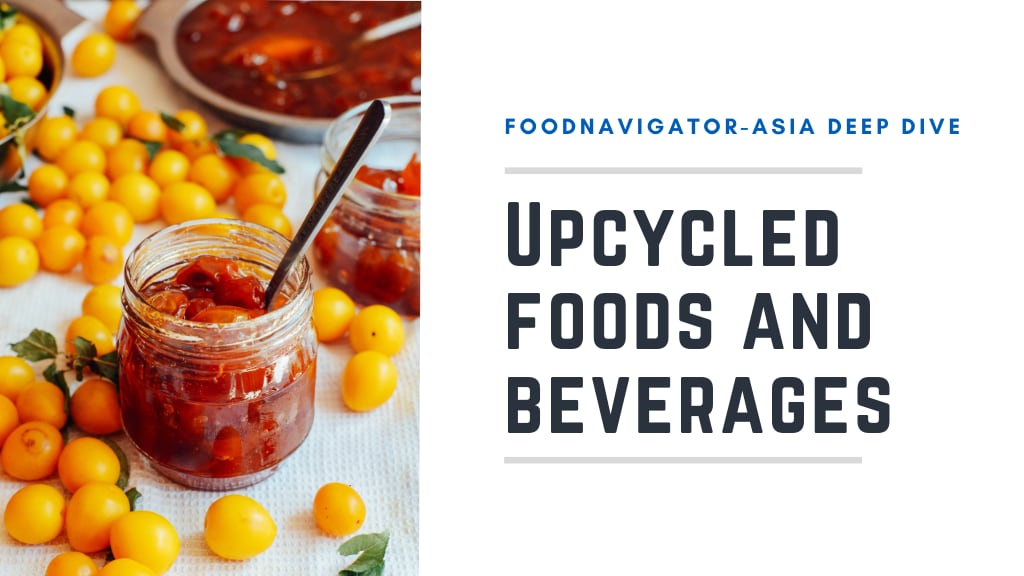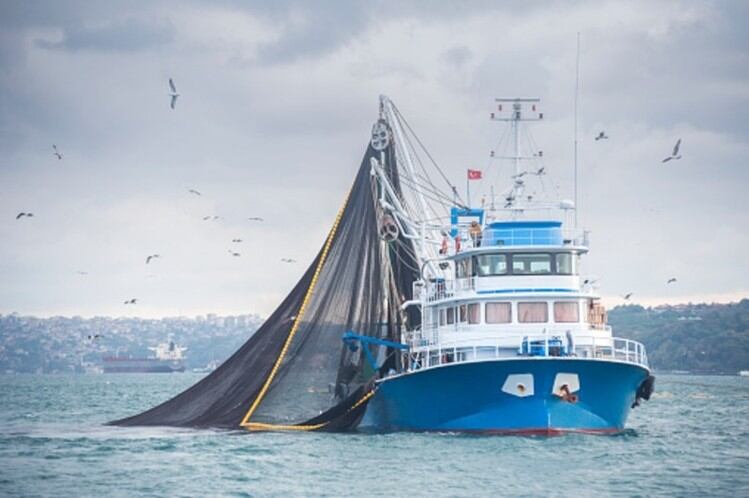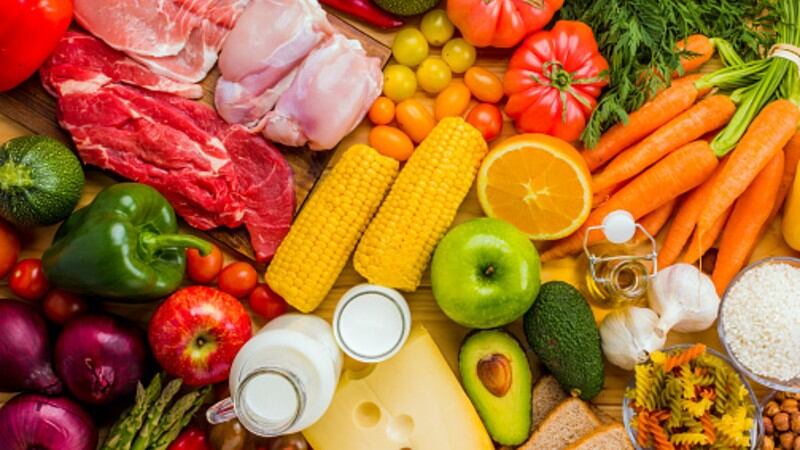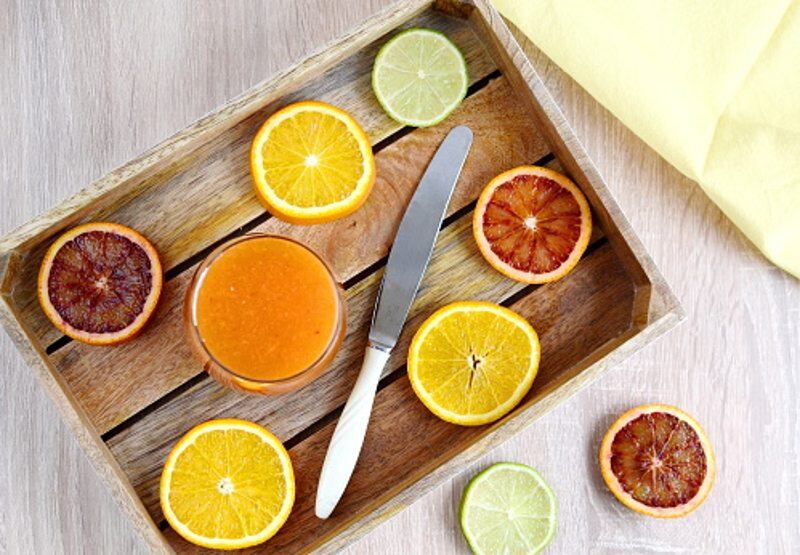The industry is relatively young in APAC but considered by many to be one of the potential next big trends in producing sustainable food and beverage products and cutting food waste, which is why in this edition of the FNA Deep Dive we take a closer look at the sector and how it is evolving and growing within the APAC region.
According to the United Nations Food and Agriculture Organisation (UNFAO), over 30% of all food produced globally is wasted every year, which equals wastage of roughly one billion tons in weight and some US$1tn in value yearly.verifial
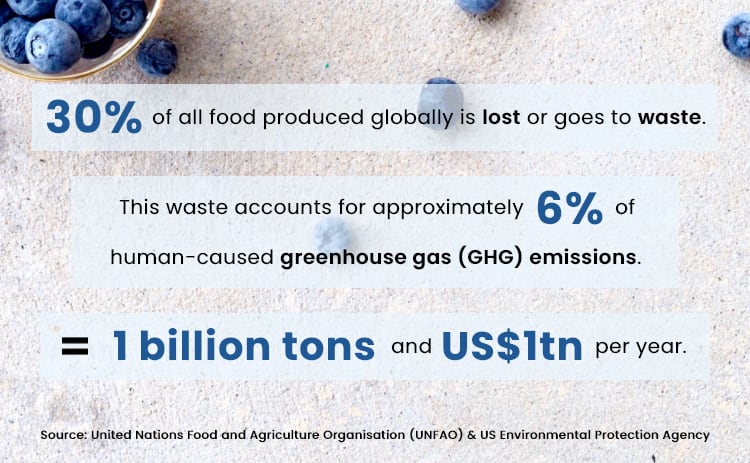
This waste also accounts for some 6% of human-caused greenhouse gas (GHG) emissions, and food waste is also known to be the main contributor to solid waste landfills in many countries.
As a movement, upcycled foods have gained a lot more traction in western countries such as the United States, where researchers have set a standard definition for the term ‘upcycled foods’, this being: ‘Upcycled foods use ingredients that otherwise would not have gone to human consumption, are procured and produced using verifiable supply chains, and have a positive impact on the environment’.
In the APAC region, one of the arguably most advanced upcycled food sectors can be found in Australia, but the industry’s progress is moving along very rapidly, particularly when it comes to retail and product innovation.
“It’s early stages for upcycled food and beverage brands in Australia but it’s definitely moving quickly,” Australian upcycled clean energy product brand I Am Grounded Co-Founder and Co-CEO Lachlan Powell told FoodNavigator-Asia.
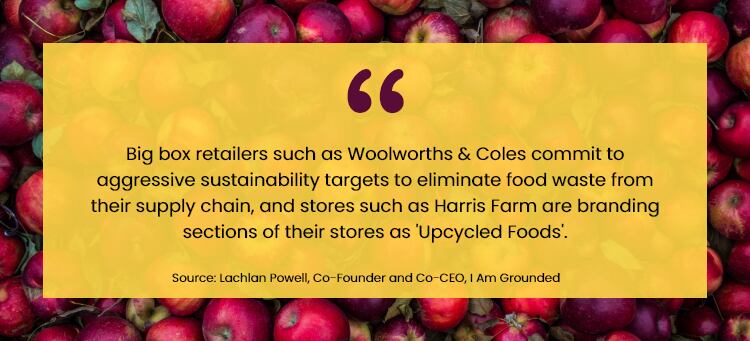
“We’re seeing big box retailers such as Woolworths & Coles commit to aggressive sustainability targets to eliminate food waste from their supply chain, and stores such as Harris Farm are branding sections of their stores as 'Upcycled Foods'.
“In addition, there is a lot of great in-depth research and work being done by the Fight Food Waste Cooperative Research Centre and current public relations campaigns run by OzHarvest help to inform and educate the public on upcycling and its potential impact.
“As a result, we’re seeing more customers becoming aware of the Upcycling message and the value in re-thinking our food and beverage supply chains.”
But when it comes to capturing consumer attention and gaining their acceptance, the firm believes that good taste is the first main criteria that needs to be satisfied, or all else is lost.
“When creating and developing new products we look first at the taste, as you often only get one chance with a consumer and if it doesn't taste great, you have already lost,” Powell said.
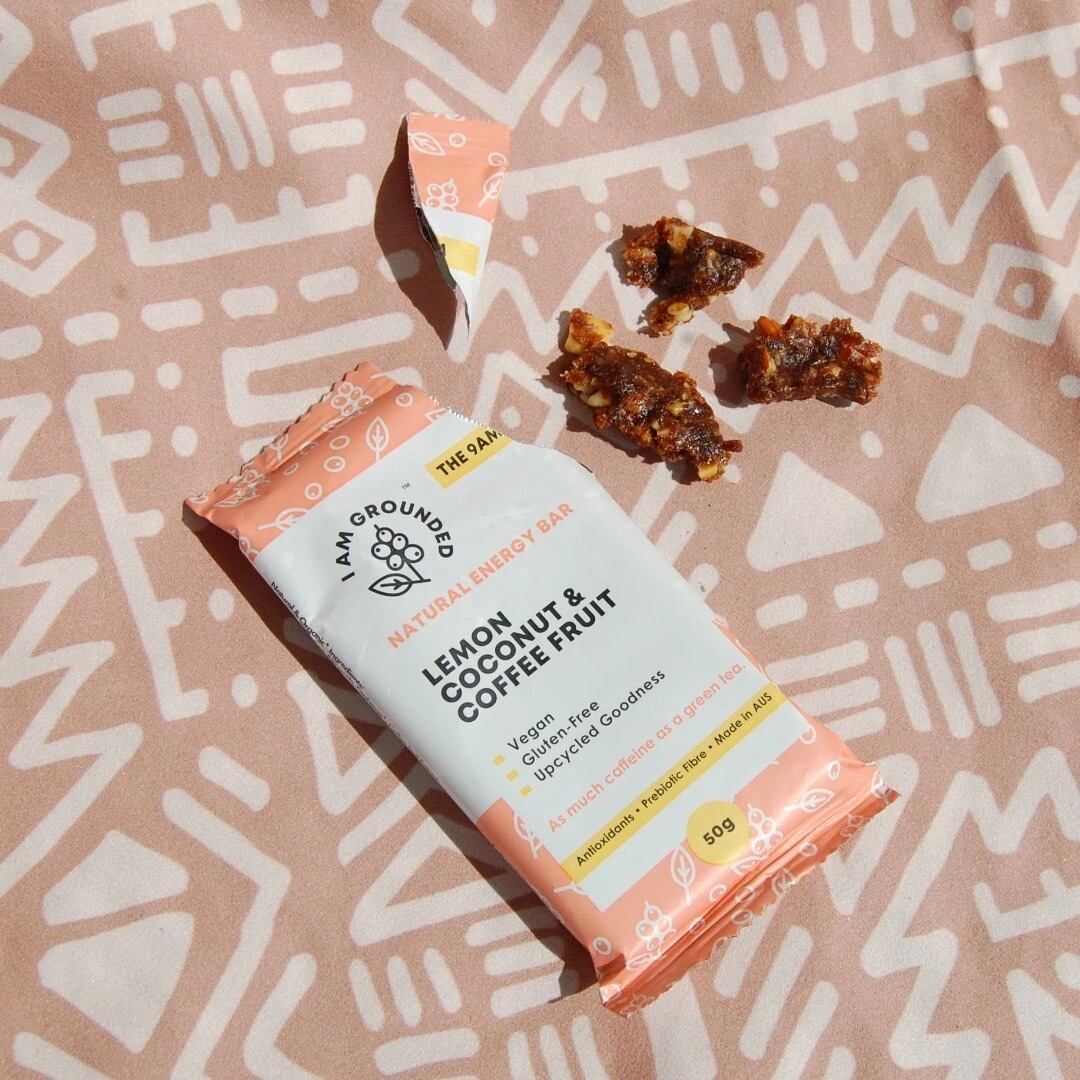
“[Only after the taste element is satisfactory] do we then look at nutrition and further, such as the product [function] and how it is satisfying consumer needs, and once we have a good handle on these items we can then look at things like the continuity of supply of ingredients or costs associated with scaling and production.”
I Am Grounded’s first upcycled products are clean energy bars that are targeted to particular times of the day that consumers might require energy, thus the 9am, 3pm and ‘Pick-me-up’ occasions.
“We believe that determining a products’ ‘job to be done’ is critical when creating functional goods, that aren’t just a one size fits all, but are actually tailored for specific moments and a specific use case for the consumer,” Co-Founder and Co-CEO Vanessa Murillo added.
Watch the video below to learn more.
The importance of taste is not limited to upcycled food items, but also beverages. Singapore’s CRUST Group also specialises in upcycled product development, and its flagship product is CRUST beer which is made from surplus bread.
“For upcycled products, it is even more important to ensure that the taste of the products developed is equal if not better to the ‘traditional’ version of the product,” CRUST Founder and Group CEO Travin Singh told us.
“As it is, we already need to do a lot of education to get consumers to understand that upcycled products are not leftover food that has been thrown away.
“So it is all the more crucial to ensure that for example a beer made from upcycled ingredients tastes just like a beer from any other brand, if not better, so that consumers will be more receptive to the product in the first place, and the fact that upcycled ingredients are used can come as more of an ‘aha’ moment, like an added bonus.”
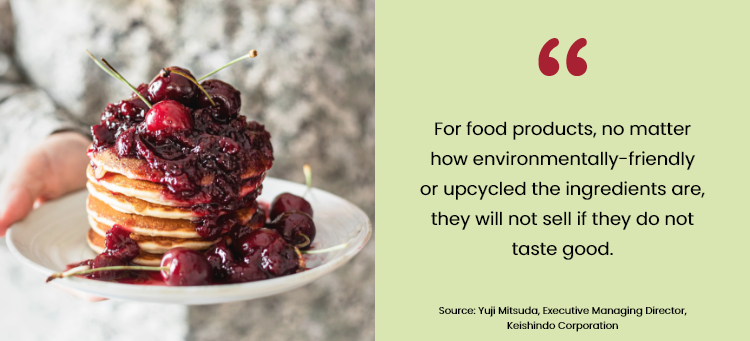
CRUST has also expanded into the Japanese market, where it sees the upcycling trend on the rise in parallel with rising consumer and government awareness about sustainability. Indeed, there are local firms who have caught on to this trend and have innovated localised products to catch the wave.
“In Japan, there is already a traditional upcycled food concept in the local snack/confectionery industry, which is to sell products that are close to expiration dates at a lower price,” Japanese shrimp snacks firm Keishindo Executive Managing Director Yuji Mitsuda told us.
“There is a term in Japanese which is ‘mottainai’, which is an expression of sadness over waste. So we believe the Japanese people have always made efforts to reduce waste as much as possible.
“That said, upcycled products with added value and sold at full price are currently still quite rare in the country.”
Keishindo makes its upcycled Sustainable Shrimp Crackers with unused shrimp parts and udon noodle off-cuts, and is one of the pioneers of ‘new age’ upcycled food products in the country.
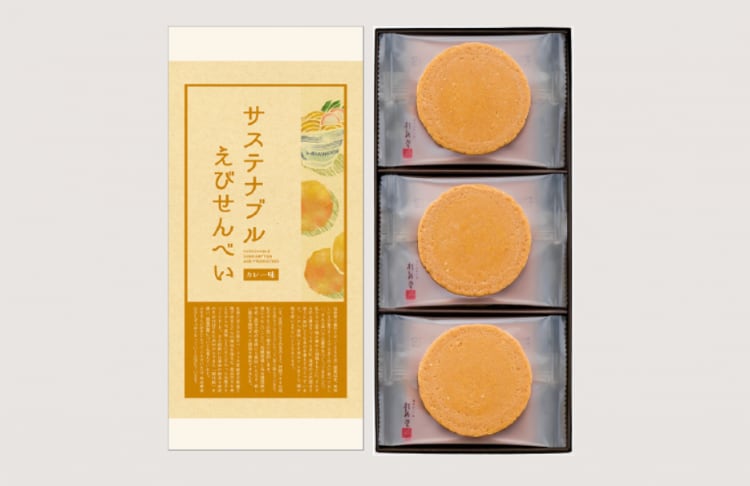
“Our Sustainable Shrimp Crackers made from upcycled ingredients were jointly developed with a Nagoya popular curry udon noodle restaurant Wakashachi-ya and students of the Nagoya International Junior & Senior High School who were studying about the UN’s Sustainable Development Goals (SDGs),” said Mitsuda.
“We make the cracker dough with the heads of sweet shrimps not used in Keishindo’s regular shrimp cracker production and the off-cuts of udon noodles that are not used in Wakashachi-ya’s regular noodle production, and bake it on a griddle to make the curry-flavored shrimp cracker.”
Mitsuda also believes that taste is the most essential element to getting consumers to accept upcycled products, especially as consumers in this region are much less driven by factors such as sustainability or animal cruelty prevention.
“In food products, no matter how environmentally-friendly or upcycled the ingredients are, they will not sell if they do not taste good, which is why at Keishindo our development team has put a lot of effort into ensuring the crackers are delicious to meet this challenge,” he said.
“We are also currently developing new products such as soup curry and soup stock using the upcycled shrimp heads from our cracker production process in cooperation with various food manufacturers. These products will become available for sale by the end of 2022.”
Big brand participation
Many big food firms have also stepped into the upcycled food and beverage sector with products of their own, such as Nestle Australia which launched its first upcycled product, a better for you adult social beverage made with upcycled cascara early last year.
The drink falls under the NESCAFE brand and is dubbed NESCAFE NATIV Cascara, earning the title of adult social beverage due to its caffeine content.
“NESCAFE NATIV Cascara bridges the gap between overly sweet soft drinks and health toting kombucha products [and targets the] consumers who want a sophisticated drink that is better-for-you,” said Nestle Oceania Director of e-Business, Strategy and Marketing Martin Brown.
“Cascara is the Spanish work for husk, and is the coffee berry surrounding the coffee bean that is usually discarded during the coffee production process.”
Another big F&B name Dole has taken interest in upcycling one step further by establishing an entire specialty ingredients business based on its fruit product side streams last year, with operations near its fruit processing plants in the Philippines but administration based in Singapore.
“[Dole] generates about one million tonnes of fruit side streams yearly, [for which] we are exploring business opportunities relating to food waste valorisation,” said Dole Specialty Ingredients Managing Director Wei Tze Ooi.
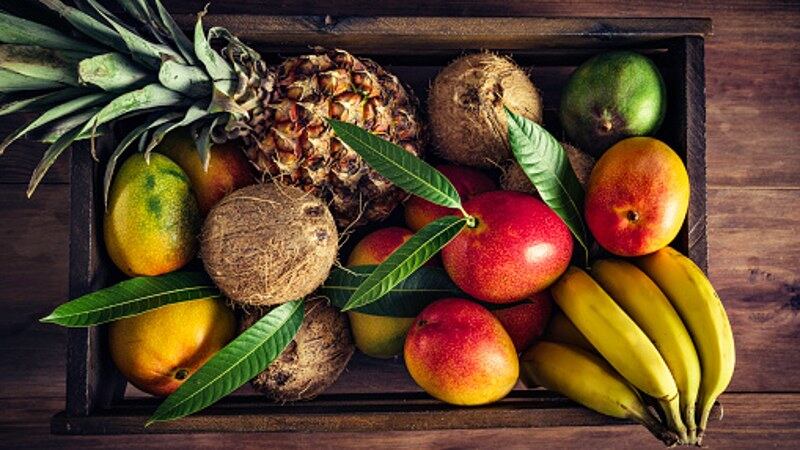
“These side streams include peels, seeds, pomace, stems and other parts of our bananas, pineapples and papayas grown at the Dole facilities in the Philippines, as well as fruits rejected [due to surface imperfections].
“These will be used for the production of specialty ingredients such as enzymes, fruit extracts, seed oils, fibres and more to be used in various industries such as for F&B product applications.”
Other big firms have opted to explore upcycling via the partnership route, such as Asia Pacific Breweries (APB) which is the manufacturer of Heineken, Tiger and other beer brands in Singapore, as well as Nestle Singapore which both work with local firm KosmodeHealth to provide spent barley grains for the production of its upcycled zero-GI noodles.
“The starch in spent barley grains is already fermented away when it has been used to make products such as beer or Milo, so what is left is essentially protein and fibre,” KosmodeHealth Co-Founder Florence Leong said.
“The amount of protein that can be obtained from these spent grains is higher than original barley grains as a result of this, as high as 20% to 30%, so the noodles are very nutritious [in addition] to being scientifically proven to be zero-GI.”
Upcycled product certification
In 2020, the upcycled product industry received a boost when the global Upcycled Food Association (UFA) developed the world’s first official certification standard covering both upcycled ingredients and products made with upcycled ingredients, in addition to a certification logo made last year to mark products that have been certified.
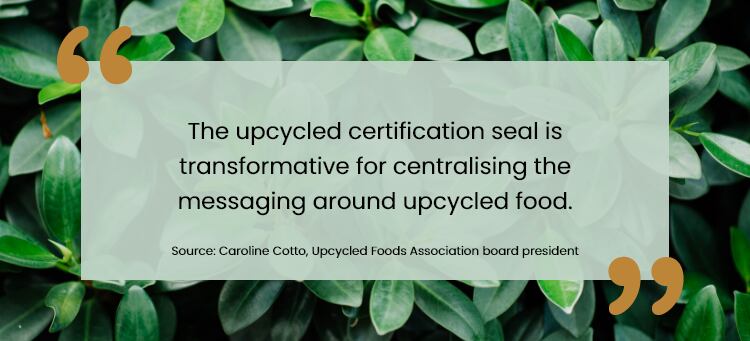
“The upcycled certification seal is transformative for centralising the messaging around upcycled food,” UFA board president Caroline Cotto said.
“We want consumers to see the mark and immediately understand not only what upcycled food is, but more importantly, the impact upcycled food has from a climate perspective.”
UFA members include not only smaller upcycled food firms but also big, influential names such as Mondelez’s SnackFutures, Del Monte and Dole Packaged Foods.
Continued challenges associated with food waste
Despite its rapid progress, industry players also do acknowledge that there remain some challenges in expanding consumer education and acceptance of upcycled products, particularly when it comes to explaining the differences between upcycled foods and food waste.
“The main challenge is to convey to consumers that upcycled products are not just merely leftover food, but instead products made from food that is usually wasted or lost due to systemic or other issues but still perfectly good to use and consume,” said Travin.
“Thankfully, things seem to be getting better now. It was more difficult to educate pre-COVID and consumers were a lot less receptive, but since the pandemic hit, over the past two years consumers have become more informed that there are so many issues arising from systemic waste and major environmental and social shifts are needed so acceptance has gone up.
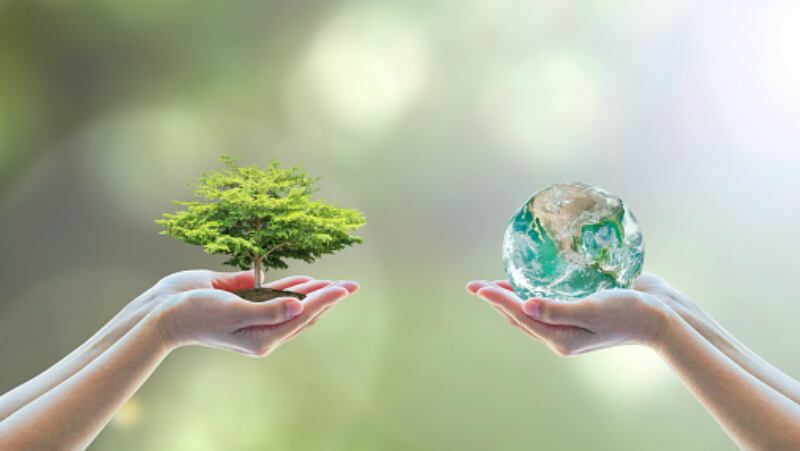
“Singaporeans have become more accepting of upcycled products after the government implemented the 30 by 30 vision but acceptance is nowhere near that of the western world yet.
“Japan is at an even earlier stage than Singapore although I have seen a huge shift over the past six to nine months particularly amongst government and businesses, which has really pushed consumers to become more receptive.”
All in all, the general consensus is that there is a lot more work that the industry needs to put in to educate and attract consumers before upcycled foods and beverages can become wide accepted, let alone go mainstream; but optimism is high within the industry that upcycling is more than just a trend, and is rapidly evolving to become another important sustainable F&B category.


